You are a human being. Not a human doing.

Do you ever feel like this?
You're working harder than ever yet not much is changing regarding what you really want and you're beginning to think there is something wrong with you.
You are a human being. Not a human doing. Sometimes we forget that as we work long hours or work hard but notice we aren’t fulfilled or our work isn’t appreciated.
Don’t push away difficult emotions. They resurface as anxiety, busyness, anger, frustration, stress, numbness and disconnectedness.
When we learn how to sit quietly and ask ourselves what’s really going on inside us, that humility creates space for courage. We open this space by getting out of our routines, going to a favorite place or on a walk. The beach always does this for me.
What we’ve turned away from creeps out of the shadows back into the light and though it is difficult to face what we’ve been running from, a sigh of relief follows when we do. Freedom is in sight.
Recently, I had a client who had been doubting his efficacy com...
It's Cost You Too Much Already to Stay Stuck

You’re a leader in a high performing role but deep down you understand that emotional intelligence and clarity are critical to your success. You’ve started to doubt yourself. You feel you don’t have a clear career path and feel you need more executive presence for greater influence and efficacy.
You’ve noticed your relationships are frayed, you’re resentful, you’re not sleeping well and other healthy habits have gone by the wayside too.
Here is what I know to be true:
- When you have the humility to see yourself honesty you free yourself to be a more powerful leader.
- When you stop focusing on being right and start focusing on getting it right you take your leadership to a whole new level.
- The path you seek is directly in front of you. When you push aside the doubt, cynicism, bureaucracy and personal agendas so you can see it clearly.
- Sitting back and waiting for others to notice your value is like sitting back and thinking the lion won’t eat you because you didn’t eat hi ...
When You Think It's Your Age
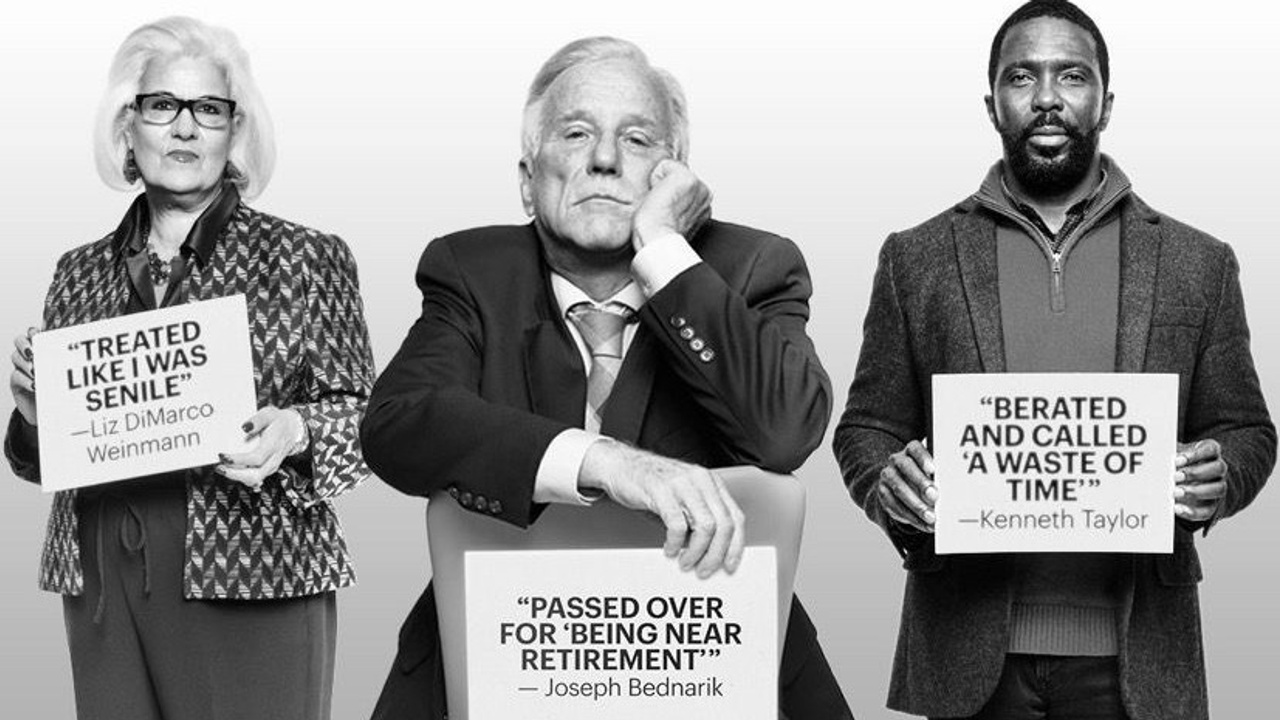
Everyday I see something posted regarding a new Diversity-Equity-Inclusion officer hired, a new DEI initiative, a DEI role posted. Rarely, if ever, do I see any content related to age discrimination. It’s hardly ever discussed, neglected from many DEI trainings and is a huge problem. I know this because of the number of clients I have who experience this. It’s the largest segment of my executive coaching practice.
DEI Officers: When you omit this as a priority from your programs you undercut your effectiveness because you lose buyin from this audience who start noticing ageism in their 40s. They are sitting there, but not buying in. No other group of constituents is larger or better posed to help you advance change than those from 40 to 67.
Everyone Else: You may not think a lot about discrimination because it doesn’t effect you. Don’t discriminate at any level because it’s wrong and demonstrates your lack of compassion, intelligence and awareness. But this area is one area where y...
If I wainted...
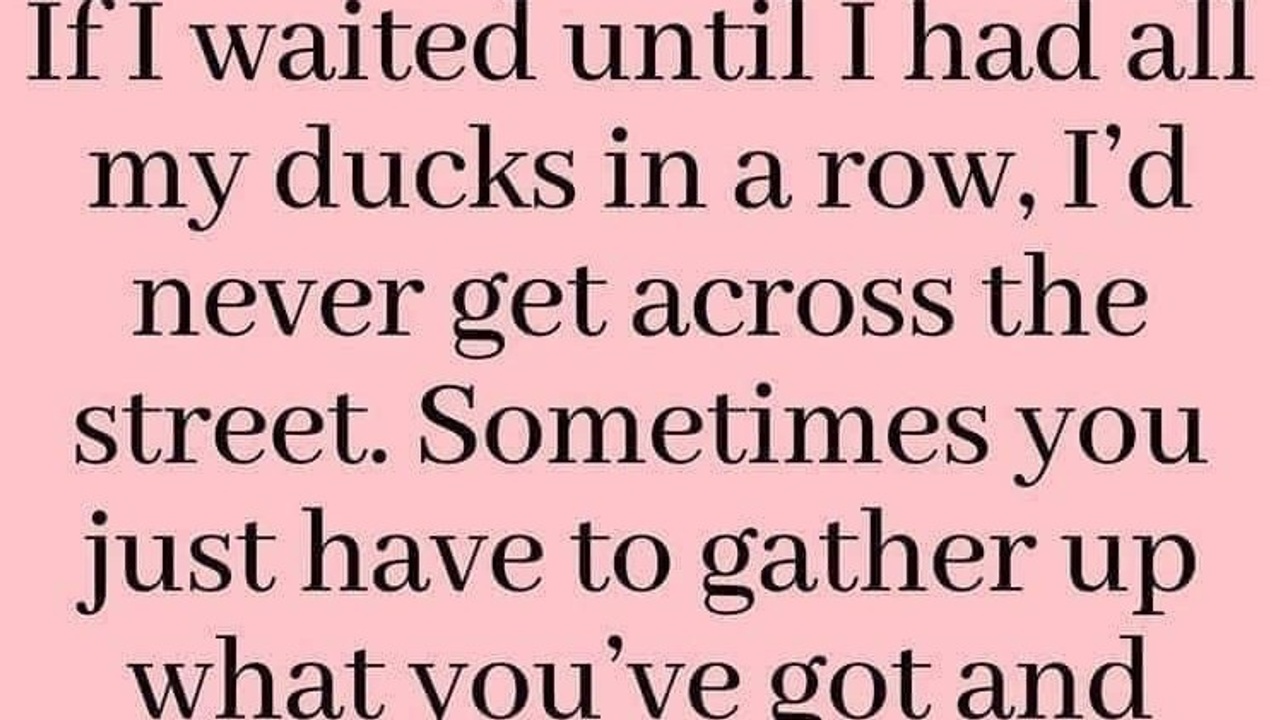
This is profoundly true. Yesterday I was having a discussion with a colleague about rule following and it became apparent that those who succeed don’t pay as much attention to the rules as they do results. They know not to discard the rules. They respect them. And they know how to work around and within them to get things done. Their focus is on the end game.
Procrastination is simply denial.
I’ve been the CEO of three organizations. There is no question that I would have never been recruited for these roles if I’d been known for following the rules. I was recruited because I was known for getting things done against the odds and for making it fun along the way.
What’s your brand? If you don’t know, you don’t have one and that’s a problem. What do you do better than most people? And working hard is not enough. At the top everyone does that. Start taking risks in the areas of your strengths. Failure is learning. Perfectionism is fear. Build up a stable of measurable accomplishment...
A Realization Today
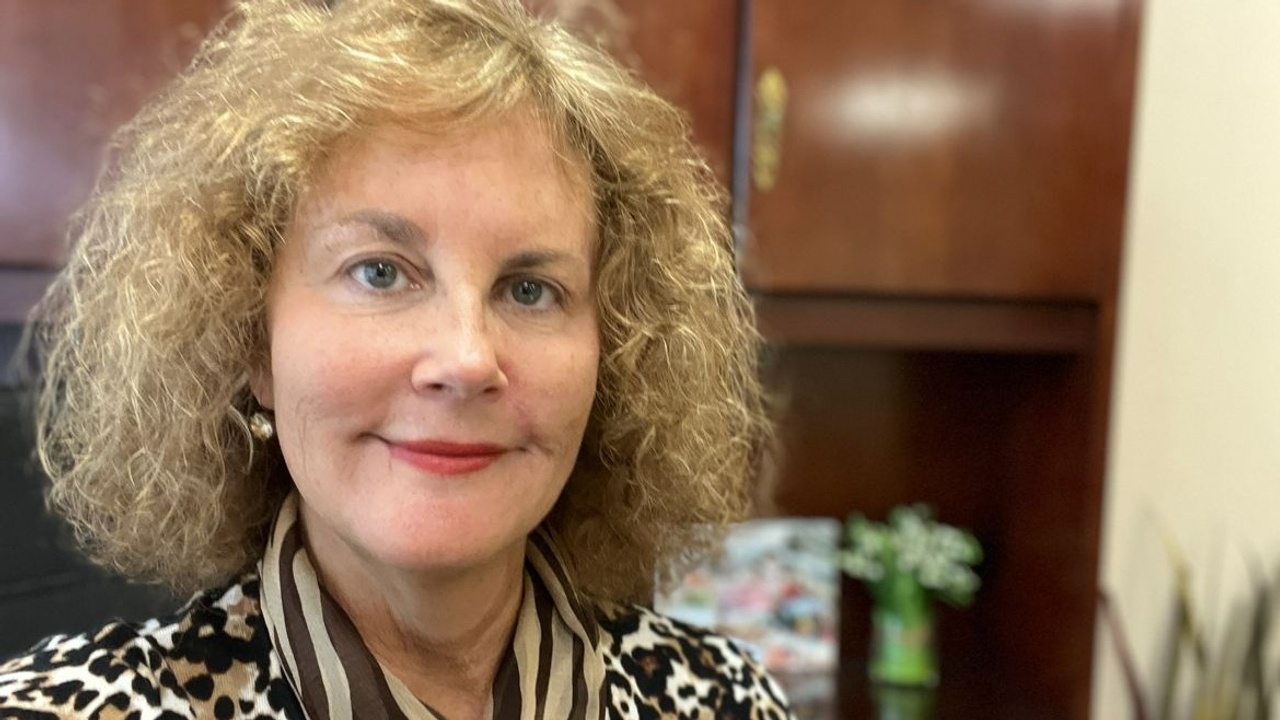
A realization today. A large part of my coaching practice is working for corporations, providing individual leadership coaching for good leaders who the organization want to develop into great leaders with exposure to self-management skills, executive presence, higher level awareness and accountability tactics.
I’m inspired by this work because these clients come to the table with incredible humility, a thirst to learn, an openness to get it right not be right, and a relief that someone is finally helping them discover within themselves their unique genius and how to use it while managing the intrusive thoughts that lead to crippling emotions and behaviors that undermine their peace and efficacy.
I am encouraged by the growing number of organizations that see that training and development, while very important, is not enough to help leaders search inside themselves for the shift necessary to unleash greatness. Challenging assumptions, letting go of perfectionism as a shield over fear, fi...
The Progress Continues

The work in progress continues. Last weekend I started oil painting. This weekend I’m still at it. Not a quitter here. I have had no formal training and haven’t oil painted since high school. This was a whole new territory for me. It is a little scary and intimidating.
You probably can identify with the excitement and doubtful feelings of trying something new – looking for a new job in a different industry or with a different title, trying to stick to a daily exercise routine to get in shape, committing to better relationship skills such as listening and pausing.
You have the best intentions. You tell yourself you will do whatever necessary to get the outcome you want – a new job, a healthier lifestyle and better physique, a closer relationship. And the first day you find you have already fallen off plan. Now, you feel even worse because not only are you discouraged, but you don’t see any hope because although you want change, you can’t even stick with it for one day.
I see my jo...
Can You Be Doing This to Engage Yor Team?
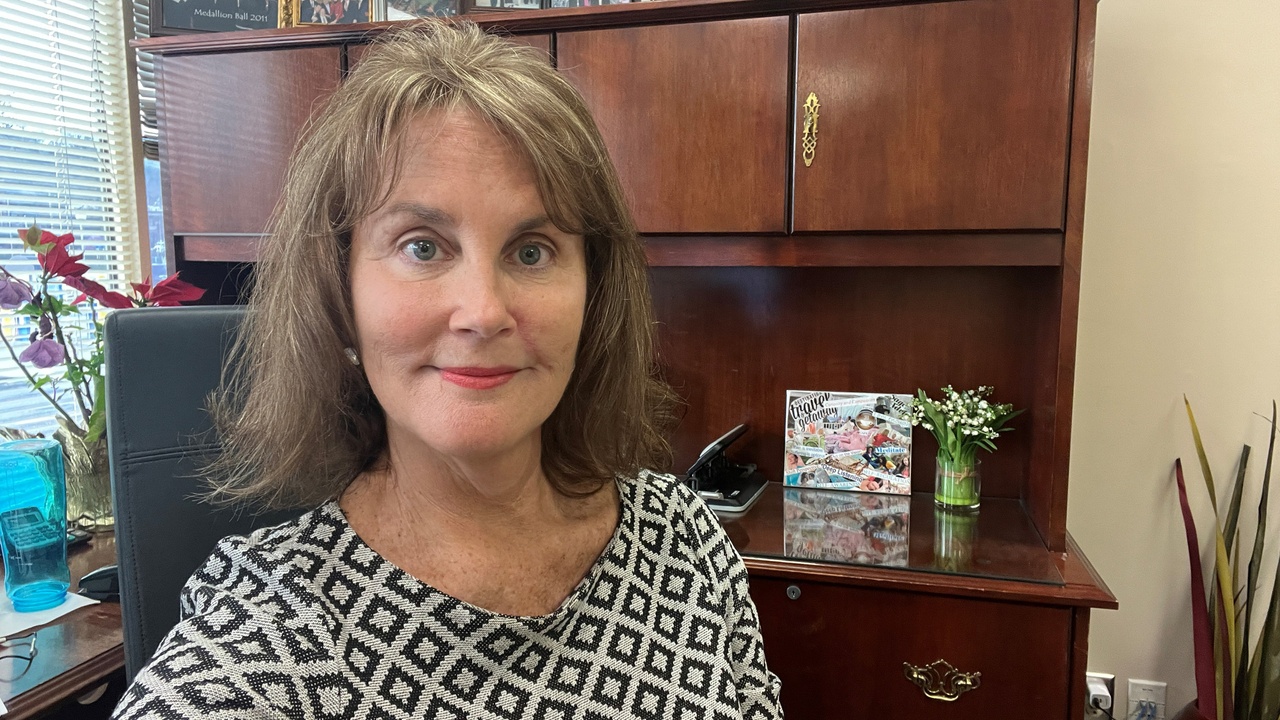
According to research conducted by Gallup, 52% of voluntarily exiting employees say that their manager or organization could have done something to prevent them from leaving their job. While you can’t make everyone stay, you can improve your retention rates if you take the time to check in with your people.
Stay interviews help employees feel they are more than just workers - that you care about them, their career and their future. Here are some questions I give my clients to ask and that I ask my team regularly.
- How have you been feeling about the path we’re on and the work you’re doing?
- What part of your job do you enjoy the most? Why?
- What do like the least? Can we modify it to make this better for you?
- How have you been feeling about in office versus working at home?
- What has been the biggest challenge this year/quarter and is there anything I can do to better support you?
- If I could do one thing differently to make work better what would that be? I really want to k ...
How to Stop the Self-Sabotage

We advance when we’re willing to stretch ourselves further than anything we’ve ever done. But it’s prickly and sticky there. Risky. We might fail. Yes. Fail. Hmmm. And then what? Did we die? Get physically hurt? Lose anything of great measure? Likely not. But we do have our feelings to deal with. So we allow them. These two are the hardest:
1. Judgment from others.
2. Self-judgment.
What really holds us back is perceived judgment that comes from perceived failure - from practicing failure in our heads before it happens.
When we turn away from the discomfort of difficult emotions, unfortunately we armor up with self-sabotage traits of perfectionism, assumptions, comparisons, expectations, more judgment and busyness which only lead to exhaustion, hopelessness and disappointment.
When we notice the judgment and accept that “this is just me judging” without self-criticism (What is wrong with me that I can't stop doing this?) and that although it’s not our true north, judging-compa...
When You've Been Through a Lot and Feel Alone
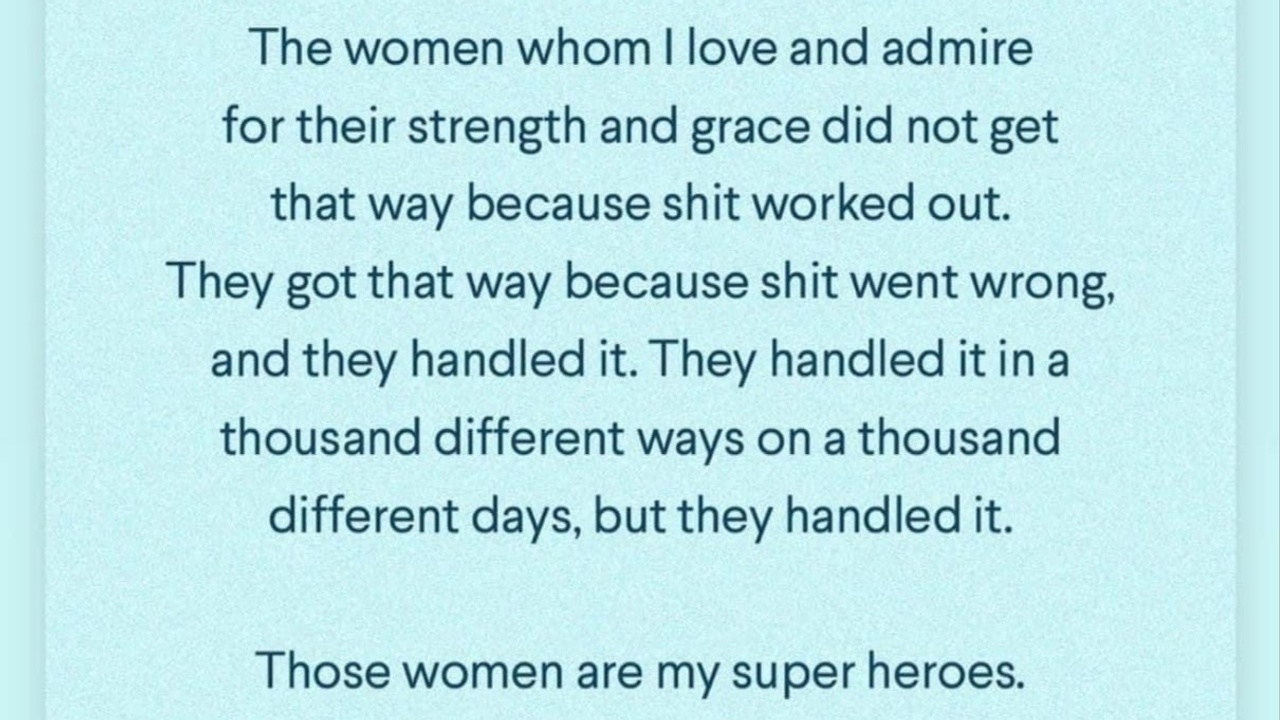
You know who you are, super heroes.
Here’s to you for not sitting back, for not whining, for making it work despite the odds, for taking risks in the face of doubt, for holding true to your priorities sometimes at the detriment of yourself, for having vision and finding a way, for listening and caring when you thought you had little to give, for being gentle with yourself when it seemed nobody was.
Here's to you for failing and starting again this time with wisdom, for swapping assumptions for the truth, for not letting comparison distract you from your goals and achievements, for wearing all the hats even when they didn’t all fit, for not needing to be right but for getting it right, for not being perfect but still awesome.
Here's to you for lying awake at night worrying about things outside of your control and accepting that no matter what happens you’ve got this, for understanding that judgment only makes you judge yourself far worse, for having the courage to face hurtful feelin...
Do meetings drive you crazy?

Dear Friends,
Did you ever feel that everyone is so busy but nothing important is getting done and meetings just add to your to-do list? Interacting is easier than ever, but true, productive, value-creating collaboration is not. Quality engagement is deteriorating. Every minute spent on a low-value interaction takes time away that could be used for important, creative, powerful innovation and activities.
Most leaders say they frequently find themselves spending way too much time on pointless interactions and meetings that drain their energy and produce information overload. As an alternative to weekly meetings where people share a look-in-the-rear-view-mirror perspective, short daily stand-up meetings or check-ins with the entire team can drive horizontal connectivity, creating the space for teams to understand what others are doing and where they need help to drive work forward without having to specifically task anyone in a hierarchical way.
Good questions when you are consideri...
